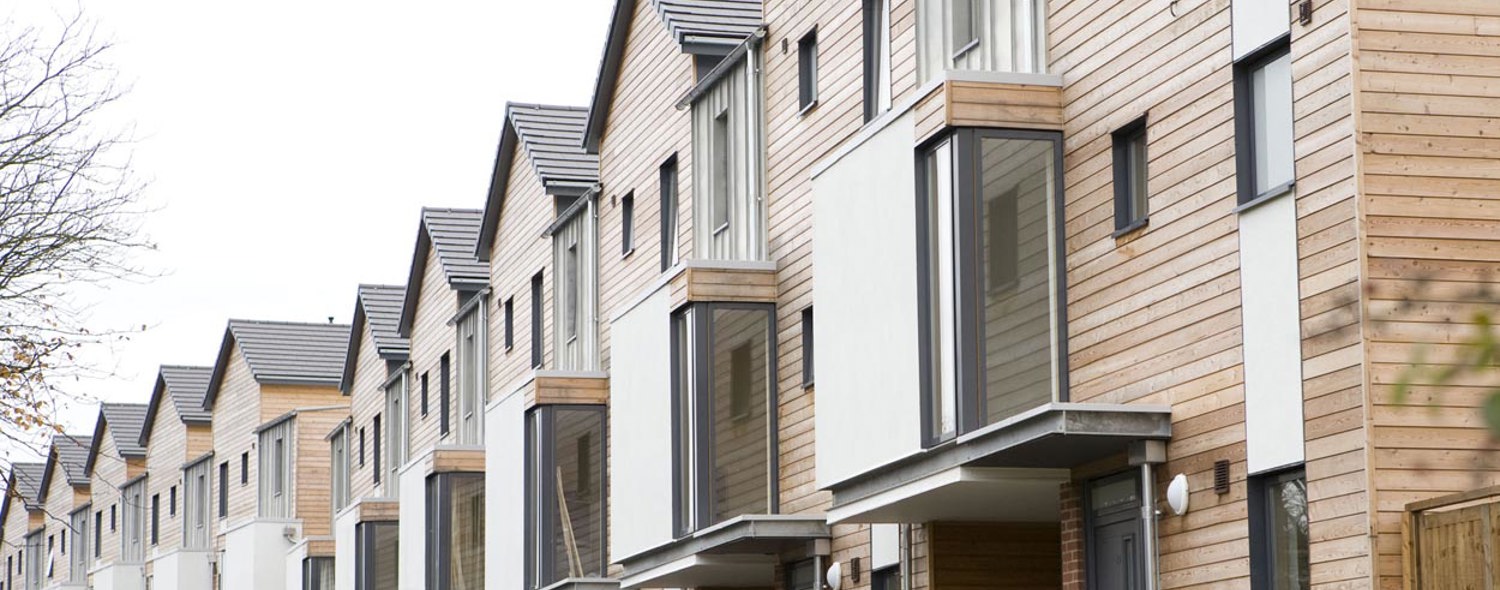
What does the government extension to the Affordable Homes Programme mean for affordable housing providers in England?
With the government announcing earlier this month that the Affordable Homes Programme is to be extended until March 2023 in the wake of Coronavirus, this has been welcome news for affordable housing providers in England. GL Hearn's Affordable Housing Specialist, Jenny Kay, shares with us her thoughts on what the extension will mean for affordable housing providers.
The extension, granted by Housing Secretary Robert Jenrick, means that housing associations and councils now have an extra 12-months to start on site delivering homes which are in contract to be delivered as part of the current £9 billion Affordable Homes Programme.
With the disruption of COVID-19, this extension is an opportunity for housing associations and local councils to win back some time to think about the housing they are planning to deliver. Undoubtedly, cost will be a key factor, and it is inevitable that for some providers the pandemic will have squeezed already tight budgets even harder. But, if we are thinking about the bigger picture, and focus on the longer-term aspirational opportunity this extension could afford for many, this is a chance to really shake up – and indeed level up – the quality of the housing being provided throughout England.
There is unprecedented demand for good quality affordable housing. The Lincoln Institute of land Policy’s survey in 2018 revealed that of 200 cities polled around the world, 90% of housing was considered unaffordable when applying the widely used standard of average house prices being more than three-times average income. It’s the adage of affordability being more than just the ability to buy or rent, but it’s about actually being able to afford to live in your home once you've in it.
So, what are the biggest challenges besides finance? For me, I would say that there are three key things. Firstly, the design standard and quality of our affordable homes for the future. COVID-19 has shown us that for the short-term, and potentially into the future, homes need to double up as workspaces for those office workers who can effectively work from home and home schools for people with young children. So, thinking about this from a design perspective is critical. How do our homes work as office locations in a more permanent way? What are the implications on spacial design and on acoustics and noise?
At GL Hearn, we have a dedicated Acoustics and Noise team who support clients to think differently about architectural and building acoustics, as well as environmental noise and vibration. Led by Xavier Sanchez-Roemmele, our Acoustics Technical Director, the team develop solutions for commercial and residential properties through noise assessments and noise modelling.
Secondly the provision of useable outside space will become more important for people, particularly those living in cities. Lockdown has proven that our local parks and recreational spaces are so important to our communities, with many people embracing them for exercise daily at the start of the pandemic, and now finding they are home to family reunions and much longed-for time with friends.
As well as the importance being placed on outdoor space, the government has also announced the introduction of their Green Homes Grant which will provide homeowners with vouchers for energy efficiency improvements, with the government committing to cover two-thirds of the cost up to £5,000.
The grant, introduced by Chancellor Rishi Sunak, will launch in September and paves the way for the UK’s green recovery plans post-COVID-19, creating jobs and helping ensure the UK meets its 2020 net zero carbon target. GL Hearn's Director of Climate Change and Air Quality, Dr Xiangyu Sheng, is supporting a number of our clients across the public and private sector with their green recovery plans post-COVID-19.
Finally, for me, it is the challenge of market uncertainty, set to remain for some time. I believe there is a real opportunity for affordable housing providers, both housing associations and councils, to take the opportunity to purchase land to deliver the affordable homes that so many people need and take back some control as a result of market volatility.
Government’s pledge to extend the scheme by 12-months brings with it certainty. It is now up to the housing providers to turn this certainty into security for the millions of people reliant on their homes.
You may also be interested in




